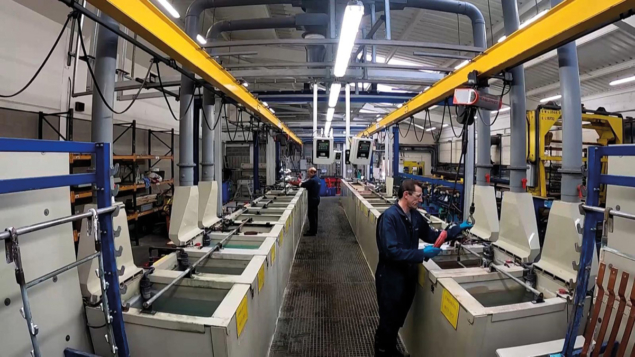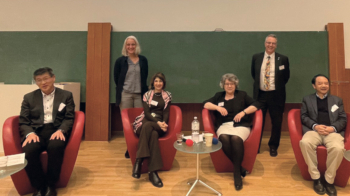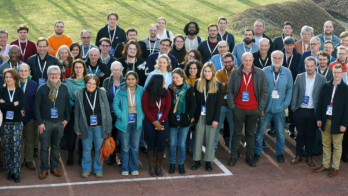
The benefits of CERN membership go well beyond science and technology, confirms a study commissioned by the UK’s Science and Technology Facilities Council (STFC). The report “Evaluation of the benefits that the UK has derived from CERN”, published on 6 August, finds that around 500 UK firms have benefitted from supplying goods and services to CERN during the past decade, bringing in £183.3M in revenue. An additional £33.4M was awarded to UK firms for CERN experiments and from the CERN pension fund, while a further £1B in turnover and £110M in profit is estimated to have resulted from knock-on effects for UK companies after working with CERN.
Over the same 10-year period, 1000 or so individuals who have participated in CERN’s various employment schemes have received training estimated to be worth more than £4.9M. The knowledge and skills gained via working at CERN are deployed across sectors including IT and software, engineering, manufacturing, financial services and health, the report notes, with young UK researchers who have engaged with CERN estimated to earn 12% more across their careers (corresponding to an extra £489M in additional wages in the past 10 years).
Each year an average of 12,000 school students and other members of the public visit CERN in person; 220,000 visit CERN’s website; and 40,000 interact with its social media. More than 1000 teachers have attended CERN’s national teacher programme in the past decade, who go on to teach an estimated 175,000 school students within three months of their visit. A survey of 673 physics undergraduates in eight UK universities revealed that 95% were attracted to study science because of activities in particle physics, with more than 50% saying they were inspired by the discovery of the Higgs boson.
In terms of science diplomacy, the report acknowledges that CERN provides a platform for the UK to engage more widely in global initiatives and international networks, spilling over to favourable perceptions of its members and greater engagement in science, technology and beyond. “Fundamental research requires long-term engagement; international collaboration makes this essential pooling of efforts possible, and the report provides a promising testimony for the future of CERN membership,” said Charlotte Warakaulle, CERN director of international relations.
Being part of one of the biggest international scientific collaborations on the planet places the UK at the frontier of discovery science
Mark Thomson
Carried out by consulting firm Technopolis, the study also quantified the scientific benefits of CERN membership. Over the past decade, more than 20,000 scientific papers with a UK author have cited one of the 40,000 papers based directly on CERN research published in the past 20 years. The report estimates that the production of knowledge can be valued at more than £495M, before even considering the impact of the advances that this research may underpin. Bibliometric analyses also show that CERN research underpins many of the UK’s most influential physics papers.
The new report supports previous studies into the benefits of CERN membership. In particular, a recent study of the impact of the High Luminosity LHC conducted by economists at the University of Milan concluded that the quantifiable return to society is well in excess to the project’s costs (CERN Courier September 2018 p51).
The UK is one of CERN’s founding members, and currently contributes £144M per year to the CERN budget (representing 16% of Member State subscriptions) via the STFC. “Being part of one of the biggest international scientific collaborations on the planet places the UK at the frontier of discovery science, which in turn helps to inspire the next generation to study physics and other STEM subjects,” says STFC executive chair Mark Thomson. “This is of huge value to the UK – and for the first time this report goes some way to quantify this.”





